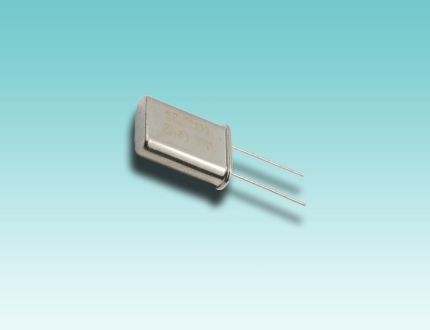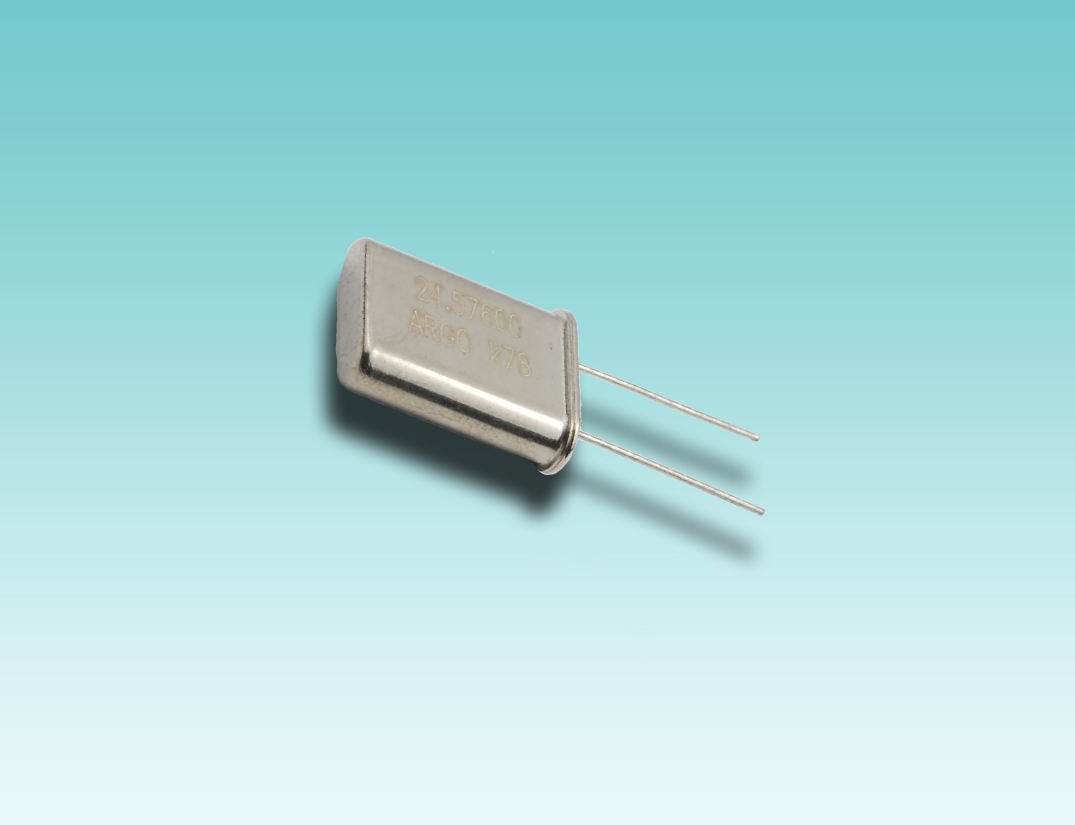Holder Type Dip Crystal
MHz Holder Type Dip Crystal AGX-T49U, AGX-T49T / AGX-T49S / T49SS / T49S+
Equivalent Series Resistance (ESR)
| Model | AGX-T49U, AGX-T49T | AGX-T49S / T49SS / T49S+ |
| Frequency Range | 1.0 ~ 200 MHz | 3.2 ~ 70 MHz |
| Mode of Oscillation |
2.01~45.0MHz:AT-cut Fund. 24.0~100MHz: AT-cut 3rdOvertone 80.0~160MHz: AT-cut 5rd Overtone 110~200 MHz: AT-cut 7rd Overtone |
3.2~30.0MHz:AT-cut Fund. 27.0~70MHz: AT-cut 3rdOvertone 24.0~48MHz: BT- cut Fund. |
| Frequency Tolerance |
SL-cut: ±50ppm at 25ºC AT-cut: ±30ppm at 25ºC |
AT-cut: ±30ppm at 25ºC BT-cut: ±50ppm at 25ºC |
| Frequency Stability |
SL-cut: ±100ppm over -10~+70ºC AT-cut: ±50ppm over -10~+70ºC |
AT-cut: ±30ppm over -10~+70ºC BT-cut: ±100ppm over -10~+70ºC |
| Shunt Capacitance (C0) | 7pF Max. | 7pF Max. |
| Load Capacitance (CL) | 8 pF ~ 32 pF for Series | 8 pF ~ 32 pF for Series |
| Drive Level | 100 ΩW | 100 ΩW |
| Operating Temperature Range | -10 ~ +70ºC | -10 ~ +70ºC |
| Storage Temperature Range | -40 ~ +85ºC | -40 ~ +85ºC |
| Aging | Less than ±3 ppm / year. (At 25±5ºC ) | Less than ±3 ppm / year. (At 25±5ºC ) |
Equivalent Series Resistance (ESR)
| Model | Freq. MHz | Oscillation Mode | ESR Max. |
| AGX-T49U / 49T | 1.0~1.3 | SL cut | 5000 Ω |
| 2.01~3.0 | AT cut Fund. | 400 Ω | |
| 3.01~3.2 | AT cut Fund. | 200 Ω | |
| 3.21~3.5 | AT cut Fund. | 150 Ω | |
| 3.51~3.9 | AT cut Fund. | 120 Ω | |
| 3.91~5.0 | AT cut Fund. | 100 Ω | |
| 5.01~7.0 | AT cut Fund. | 50 Ω | |
| 7.01~10.0 | AT cut Fund. | 35 Ω | |
| 10.0~30.0 | AT cut Fund. | 25 Ω | |
| 30.01~45.0 | AT cut Fund. | 20 Ω | |
| 24.0~100.0 | AT cut 3rd O/T | 40 Ω | |
| 80.0~160.0 | AT cut 5rd O/T | 70 Ω | |
| 110.0~200.0 | AT cut 7rd O/T | 120 Ω | |
| AGX-T49S / T49SS / T49S+ | 3.2~3.4 | AT cut Fund. | 300 Ω |
| 3.5~4.0 | AT cut Fund. | 150 Ω | |
| 4.1~4.9 | AT cut Fund. | 120 Ω | |
| 5.0~5.9 | AT cut Fund. | 100 Ω | |
| 6.0~8.9 | AT cut Fund. | 80 Ω | |
| 9.0~9.9 | AT cut Fund. | 60 Ω | |
| 10.0~12.9 | AT cut Fund. | 50 Ω | |
| 13.0~30.0 | AT cut Fund. | 40 Ω | |
| 24.0~40.0 | AT cut Fund. | 40 Ω | |
| 40.1~48.0 | AT cut Fund. | 30 Ω | |
| 27.0~30.0 | AT cut 3rd O/T | 150 Ω | |
| 30.1~50.0 | AT cut 5rd O/T | 100 Ω | |
| 50.1~70.0 | AT cut 7rd O/T |
80 Ω |
A crystal oscillator is an electronic oscillator circuit that uses the mechanical resonance of a vibrating crystal of piezoelectric material to create an electrical signal with a very precise frequency. This frequency is commonly used to keep track of time (as in quartz wristwatches), to provide a stable clock signal for digital integrated circuits, and to stabilize frequencies for radio transmitters and receivers. The most common type of piezoelectric resonator used is the quartz crystal, so oscillator circuits incorporating them became known as crystal oscillators, but other piezoelectric materials including polycrystalline ceramics are used in similar circuits.
Quartz crystals are manufactured for frequencies from a few tens of kilohertz to tens of megahertz. More than two billion crystals are manufactured annually. Most are used for consumer devices such as wristwatches, clocks, radios, computers, and cellphones. Quartz crystals are also found inside test and measurement equipment, such as counters, signal generators, and oscilloscopes.



